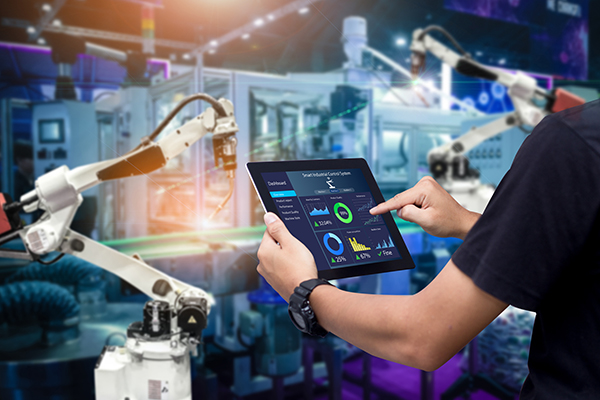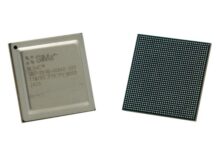The manufacturing industry is experiencing a significant transformation due to Industry 4.0 and the emergence of smart factories. This technological revolution is being powered by the Internet of Things (IoT), data analytics, and artificial intelligence (AI), and it is causing a complete overhaul of conventional manufacturing processes.
The global Industry 4.0 market size was valued at USD 114.55 billion in 2021 and is projected to grow from USD 130.90 billion in 2022 to USD 377.30 billion by 2029, exhibiting a CAGR of 16.3% during the forecast period.
1. Industry 4.0: The Manufacturing Revolution
The manufacturing industry is undergoing a significant transformation with the advent of Industry 4.0. This revolution is characterized by the infusion of digital technologies into traditional manufacturing processes.
2. IoT-Powered Connectivity
Central to Industry 4.0 is the Internet of Things (IoT). Smart factories are equipped with sensors and devices that enable real-time data collection and analysis. These interconnected systems allow machines to communicate, leading to improved operational efficiency.
3. Data-Driven Decision-Making
The data generated by IoT devices is a valuable asset for manufacturers. Advanced analytics and artificial intelligence (AI) algorithms process this data to provide actionable insights. Manufacturers can predict maintenance needs, optimize processes, and make informed decisions, resulting in increased productivity and cost savings.
4. Automation and Robotics
Smart factories are characterized by automation and robotics. Robots are deployed to perform repetitive tasks with precision and speed, significantly enhancing productivity. Collaborative robots (cobots) work alongside human workers, ensuring safety and efficiency on the factory floor.
5. Revolutionizing the Supply Chain
Digital transformation extends beyond the factory walls to revolutionize the entire supply chain. Manufacturers leverage digital technologies for real-time visibility into inventory, accurate demand forecasting, and streamlined logistics. This end-to-end transparency reduces costs and enables rapid responses to changing market conditions.
6. Challenges and Cybersecurity
While Industry 4.0 offers substantial benefits, it also poses challenges. The interconnected nature of smart factories increases their vulnerability to cyber threats. Robust cybersecurity measures are imperative to protect sensitive data and critical operations. Noventiq addresses the cybersecurity challenges of Industry 4.0, safeguarding smart factories from cyber threats. Their solutions protect interconnected systems, ensuring secure operations amid the digital transformation of manufacturing.
7. Sustainability Through Digital Transformation
Smart factories contribute to sustainability efforts. Data-driven insights and automation enable manufacturers to reduce waste, optimize energy consumption, and minimize their environmental footprint. This commitment aligns with global sustainability goals.
Digital transformation in manufacturing represents more than just a technological upgrade; it signifies a fundamental shift in the industry. Industry 4.0 is reshaping manufacturing, making it smarter, more efficient, and environmentally responsible. Embracing this transformation is essential for manufacturers looking to thrive in the digital age.

















